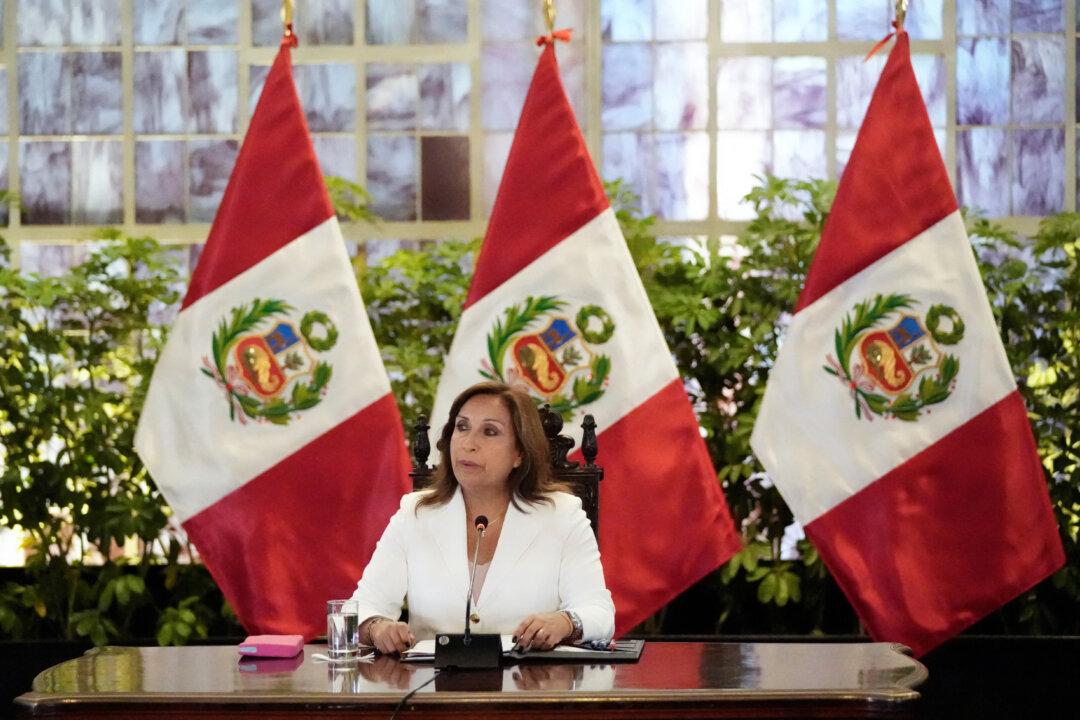WASHINGTON—Canada’s top trade negotiator joined her Mexican and U.S. counterparts in Washington on Aug. 28 in a bid for Ottawa to be part of a revamped North American trade pact, as U.S. officials expressed optimism a deal could be reached this week.
President Donald Trump said the United States would proceed with a deal with Mexico alone and levy tariffs on Canada if it does not come on board with the revised trade deal. He spoke with Canadian Prime Minister Justin Trudeau shortly after the announcement, and both agreed to continue the conversation on trade.
A spokesman for Canadian Foreign Minister Chrystia Freeland, who was due to arrive in Washington on Aug. 28 for the talks, said Canada would only sign a new agreement that is good for the country.
Freeland rejoins year-long talks following a hiatus of several weeks as the United States and Mexico ironed out outstanding bilateral disagreements, in renegotiating the 24-year-old accord.
“The U.S. market and the Canadian markets are very intertwined,” Mnuchin said. “It’s important for them to get this deal and it’s important for us to get this deal.”
Mexican Foreign Minister Luis Videgaray told Mexican television on Aug. 28 the three sides would work for a three-way deal.
“We are now going to devote long hours to the negotiation with Canada,” he said.
Senate Finance Committee Chairman Orrin Hatch (R-Utah) called the deal an “important step toward modernizing NAFTA,” but also said that the final deal should include Canada.
Negotiations among the three partners, whose mutual trade totals more than $1 trillion annually, have dragged on for more than a year, putting pressure on the Mexican peso and the Canadian dollar. Both currencies gained against the U.S. dollar on Aug. 27, but the peso weakened the next day.
Canada’s main stock index opened higher on Aug. 28 on the prospect of Ottawa reaching a deal this week, before dipping.
A sticking point for Canada is the U.S. effort to drop the Chapter 19 dispute resolution mechanism that hinders the United States from pursuing anti-dumping and anti-subsidy cases. U.S. Trade Representative Robert Lighthizer said on Aug. 27 that Mexico had agreed to eliminate the mechanism.
Trump says he still could put tariffs on Canadian-made cars if Canada didn’t join its neighbors, and warned he expected concessions on Canada’s dairy protections.
Canada’s dairy farmers operate under a protectionist system that manages supplies and prices, and imposes high tariffs to limit imports. U.S. demands have ranged from ending those tariffs to scrapping a milk ingredient pricing system called Class 7.
“It seems like a pretty steep challenge to now resolve these issues in three days,” said David Wiens, a Manitoba dairy farmer and vice president of industry group Dairy Farmers of Canada.
If a deal isn’t reached with Canada, Mnuchin said, the United States would proceed with a separate trade agreement with Mexico. The Mexican government has also taken that position, even as it says it wants a trilateral deal.
Videgaray said in Washington on Aug. 27 that the scope for making changes with Canada to what the United States and Mexico had agreed to was “significantly larger” this week, though he didn’t rule out alterations after that.
“But it would certainly be much better to have an understanding by the end of the week,” he told reporters.
If talks with Canada are not wrapped up by the end of this week, Trump plans to notify Congress that he has reached a deal with Mexico, but would be open to Canada joining, Lighthizer said on Aug. 27.
“This wasn’t designed to put pressure on anyone or anything like that,” a senior administration official told reporters in a conference call on Aug. 27. “We decided we were better off to try to get a deal with one party and then hopefully the other.”
The president must notify Congress 90 days in advance of a trade deal being signed, and the White House said Trump will sign the deal if Congress approves it.




